“We thought it was fireworks”
The attacker fired two shots to knock down the former Japanese prime minister. In a matter of seconds, Abe himself would be crushed on the pavement by Abe’s guards, who, for unknown reasons, had allowed the killer to come within attack range.
What some eyewitnesses mistook for fireworks turned out to be homemade weapons. The trigger was pulled by the 41-year-old Nara resident, Tetsuya Yamagami – who, during police questioning, admitted to killing the former prime minister because he was dissatisfied with his policies.
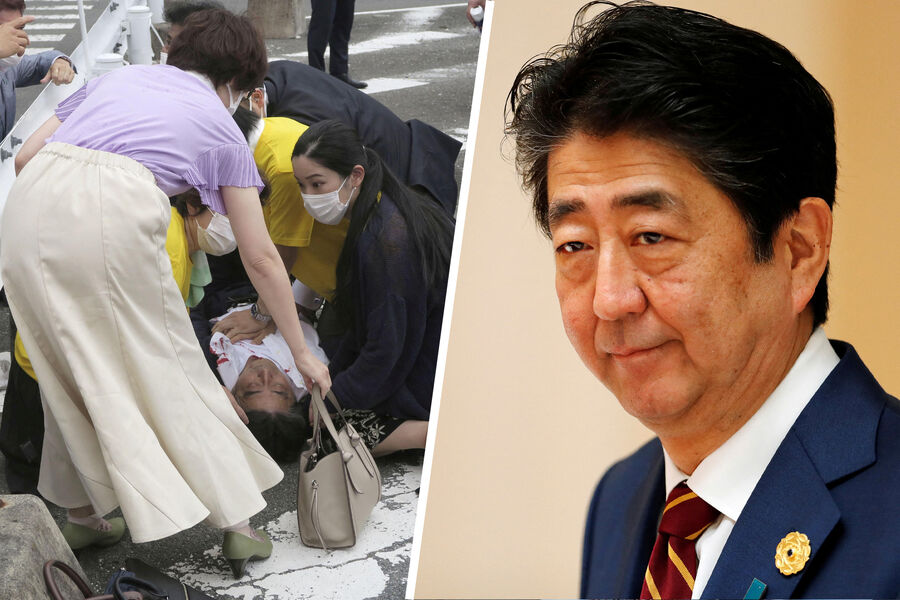

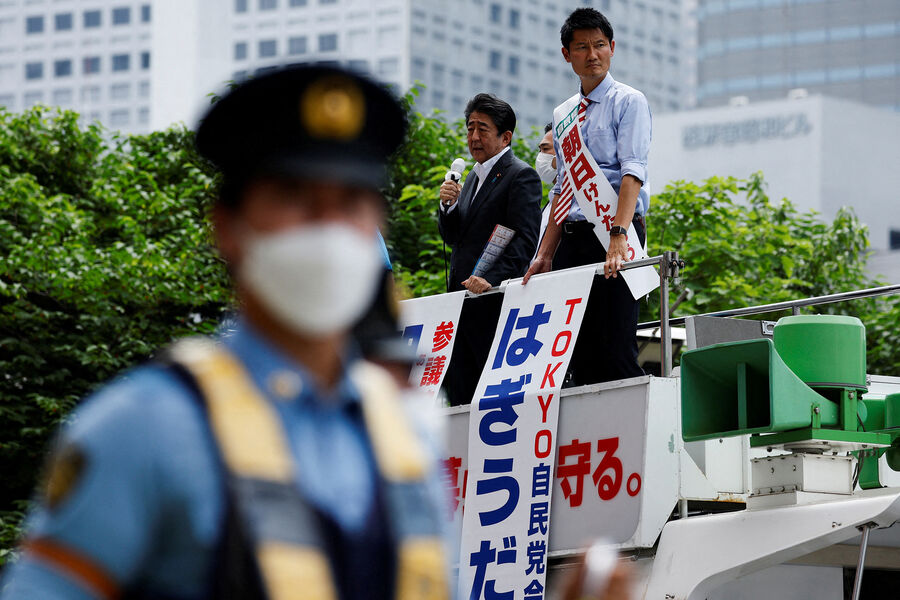

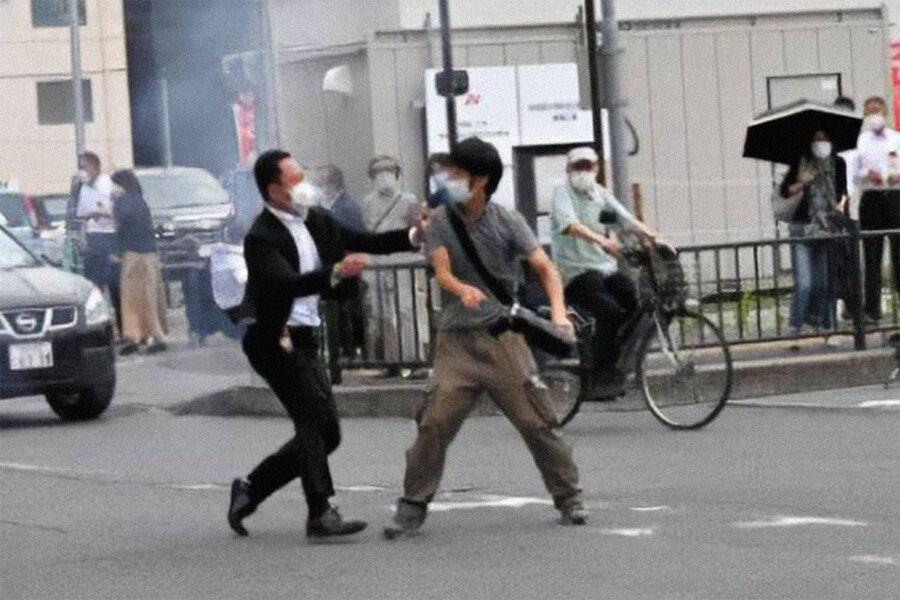

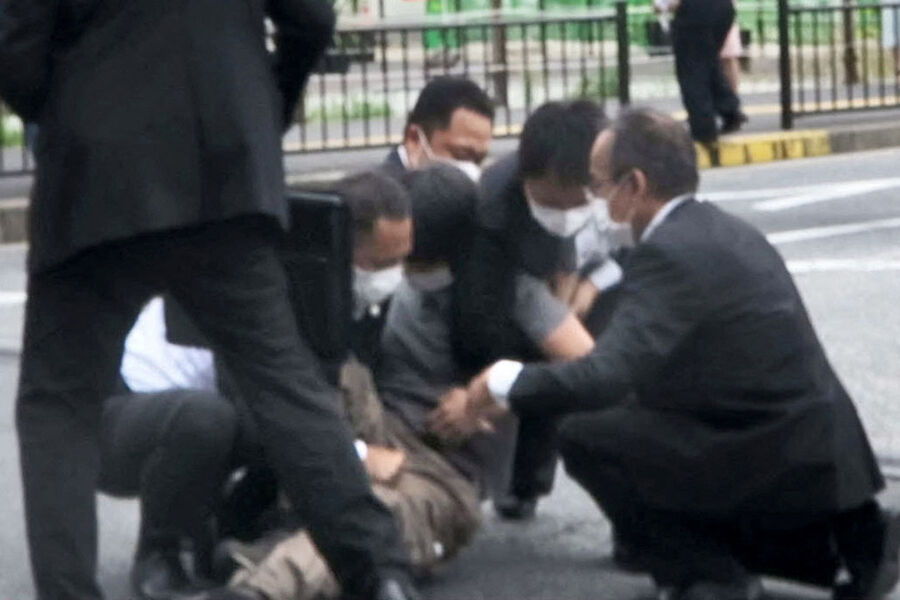
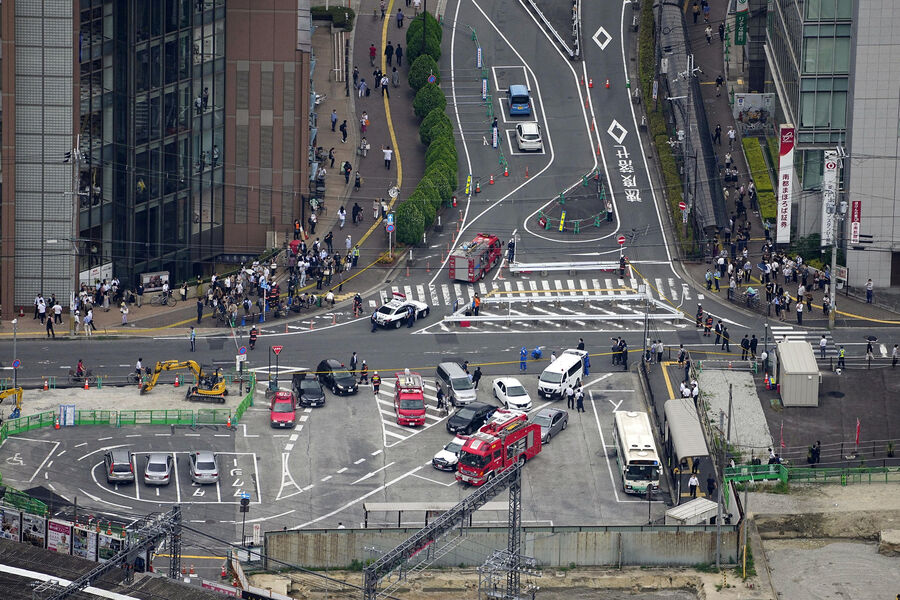
in a separate report
see photo
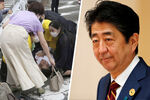

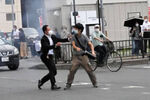


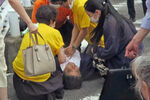
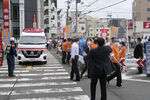
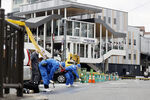
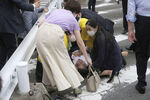
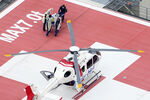
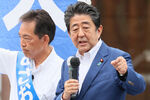
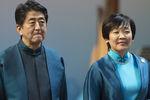
Vasily Molodyakov, doctor of political science, professor at Takushoku University, is nevertheless sure: the murderer is a mentally unstable person, and politics has nothing to do with it.
“There is no need to talk about any political motives, even if they are at the head of the assassin. The shooter is clearly a frustrated person. He may have some personal points with Abe.
Let’s say there is clearly no conspiracy here. In Japan sometimes people with knives throw themselves at others. This happens rarely and immediately gets into the national news – this is always unusual, ”Molodyakov said in a conversation with socialbites.ca.
Vladimir Nelidov, associate professor at MGIMO, also urged not to look for any trace of conspiracy in the incident, in a comment to socialbites.ca.
»[Убийца] just crazy. There is no point in building a conspiracy theory as there is no ground for it. Yes, Abe remained an influential politician, they talked about the shadow effect. But I think political terror is impossible in today’s Japan. There is no ultranationalist force in sight that can do this now,” Nelidov explained.
After Abe’s resignation
Shinzo Abe resigned as prime minister on 28 August 2020 due to worsening health problems. But his political career did not end there. In November 2021, Abe led the largest faction in his native Liberal Democratic Party (LDP), all the while holding a deputy seat in the Japanese parliament.
According to Vasily Molodyakov, even two years after his resignation, Abe remained one of the most influential politicians in Japan.
“It has not lost its political weight and remains one of the main political weights of modern Japan. Abe was a very well-known politician in the truest sense of the word.
On many political posters in Japan, you can see a tandem of newcomers and popular politicians – this means that a famous politician proposed a person as a representative of his faction. Thus, Abe’s face regularly appeared on such posters, ”explained Takushoku University professor Molodyakov.
Associate Professor MGIMO Nelidov agrees with him.
“When Fumio Kishida became the new prime minister, many assumed that influential people like Abe influenced it. And even in the new power structure, he retained a lot of administrative weight despite being an ordinary MP.”
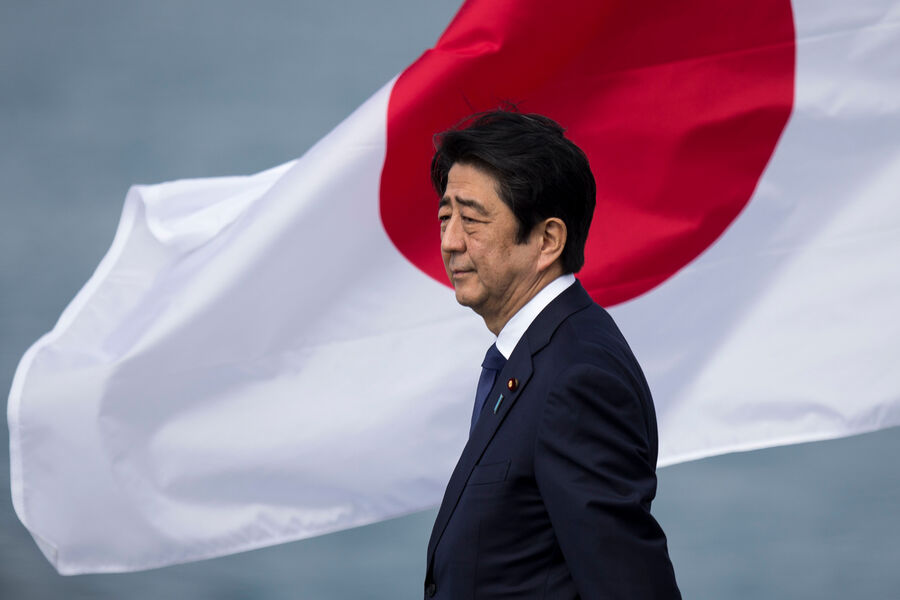

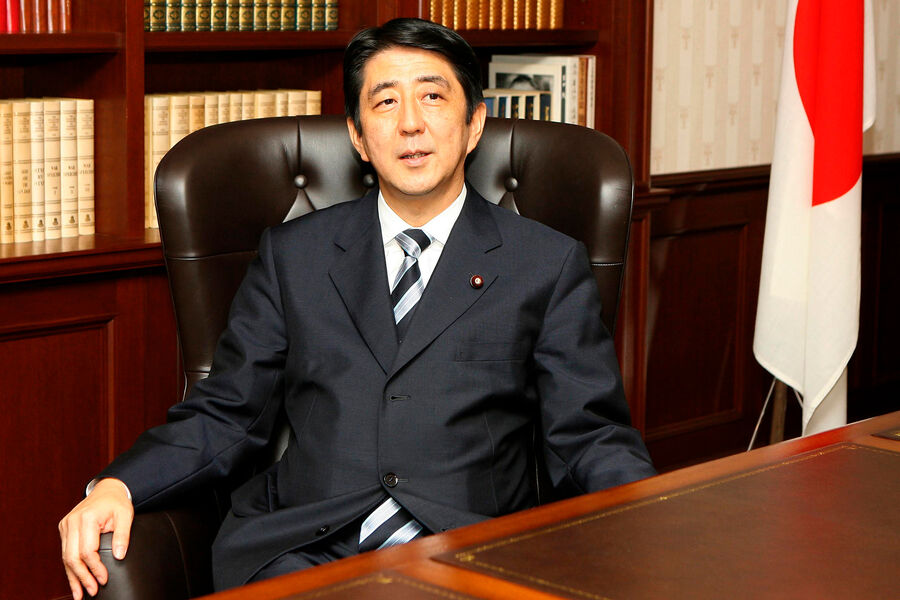

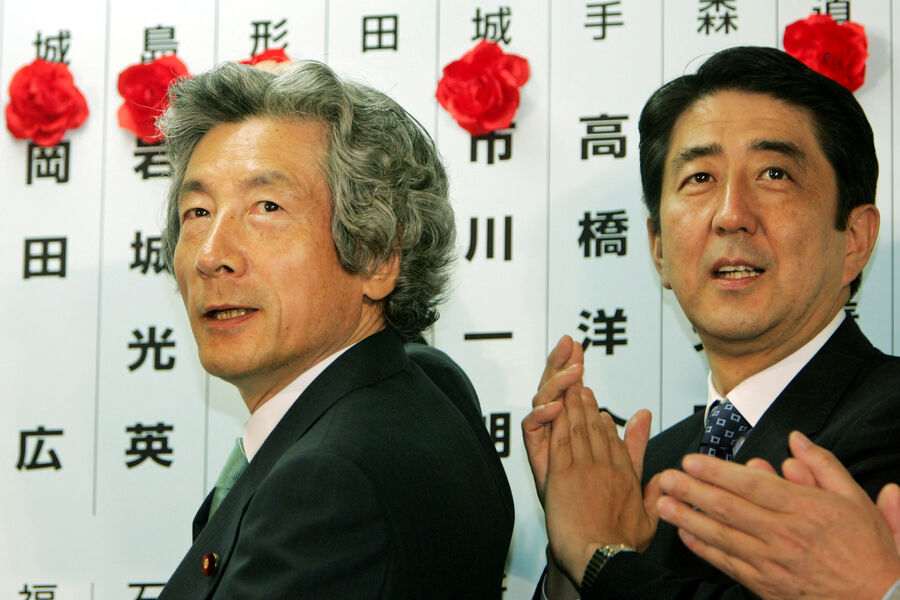

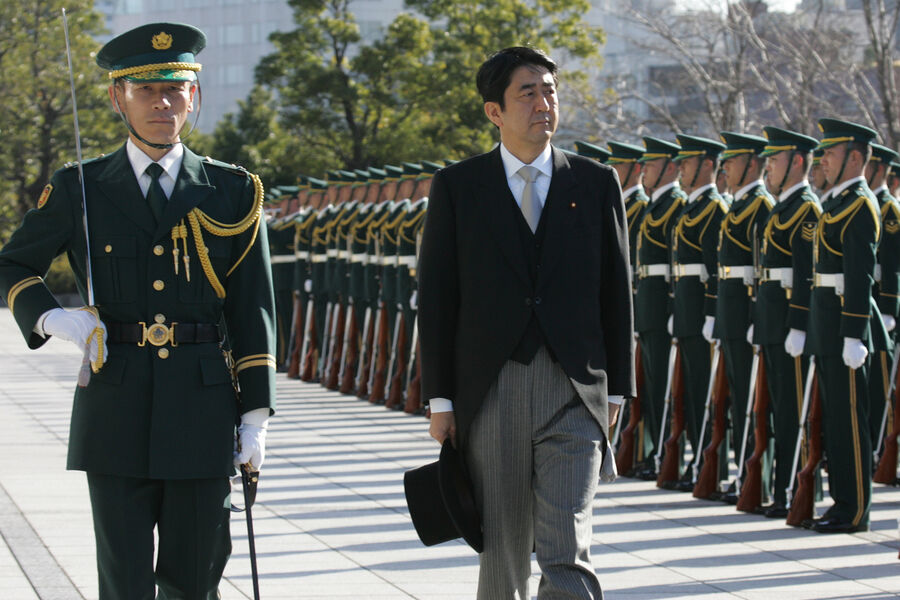
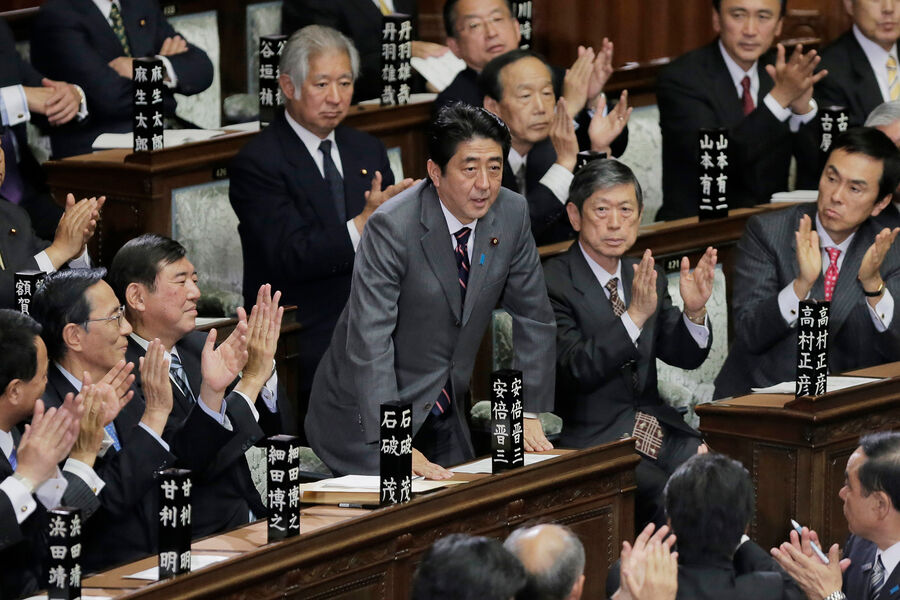
in a separate report
see photo
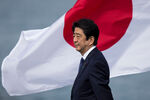
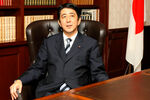
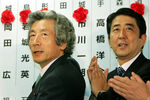
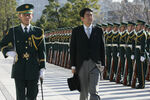
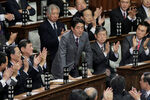
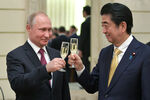
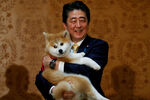
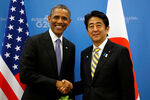
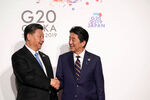
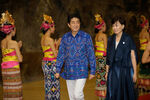

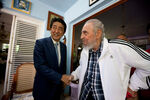
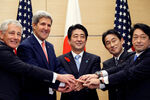
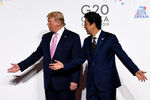


Main achievements
The prime minister was centre-right and consistently advocated a rapprochement between Japan and the United States. But Vasily Molodyakov believes that the main achievement of Shinzo Abe in the post of prime minister was the stabilization of the domestic political situation in the country.
“He broke the prime ministerial record and managed to become an excellent process manager in domestic politics.
Japanese politicians traditionally lack leadership qualities and are often blamed for this. Abe was the leader.
Given the peculiarities of Japan’s political culture, they do not need a president, but a chief who coordinates the work of his government. Shinzo Abe coped with this task,” said Molodyakov.
The Takushoku University professor also noted that before Abe, political life in Japan was in a turbulent state due to frequent prime minister changes.
“Under Abe’s leadership, Japan lived normally. For eight years, it has managed to ensure the normal functioning of the second economic power in the world in many respects, which is not bad at all. It also observed the norms of party democracy and stabilized the struggle of factions within the LDP. It also de facto deprived the opposition of the chance to change the political regime,” he said.
Contribution to relations with Russia
A special place in Shinzo Abe’s political career is occupied by the course towards a peace agreement with Russia. The number of meetings with Russian President Vladimir Putin reveals Abe’s aspirations best – politicians have met almost 30 times. However, the countries could not agree on one fundamental issue – the fate of the Southern Kurils, whose sovereignty was actively contested by Japan.
Abe has managed to advance Japanese-American relations significantly, but has failed in relations with Russia, says Vladimir Nelidov, associate professor at MGIMO.
By the end of his term, it became clear that there would be no compromise. Yes, his prime ministership will go down in history as a period of disintegration in the relations between the two countries. But if the engine of the negotiation process is communication only at the highest level, then this is not enough, as the experience of multi-member meetings between Abe and Putin, which mostly remained a formality, has shown, ”Nelidov summarized.
Professor Molodyakov highly appreciated the quality of Russian-Japanese relations during the Shinzo Abe era.
“He sincerely tried to improve relations with Moscow. Yes, Abe said the kind words he promised his father to solve the problem. But it wasn’t just a matter of lofty thoughts. It was also a political PR. But everyone knew it wouldn’t work. But he tried really hard. What looked like small steps from the outside was actually progress. In particular, Tokyo’s rejection of the official statement regarding the occupation of the South Kuril Islands was a huge step forward,” explained Professor Molodyakov.
“A Japanese politician said that there are no gray cardinals in Japan because they are all gray. So Abe has never been grey. He spoke well in public and carried himself well. Unlike many of his contemporaries, I am sure he will be remembered. Abe’s activities are an asset to Russian-Japanese relations.”
Source: Gazeta
Calvin Turley is an author at “Social Bites”. He is a trendsetter who writes about the latest fashion and entertainment news. With a keen eye for style and a deep understanding of the entertainment industry, Calvin provides engaging and informative articles that keep his readers up-to-date on the latest fashion trends and entertainment happenings.

